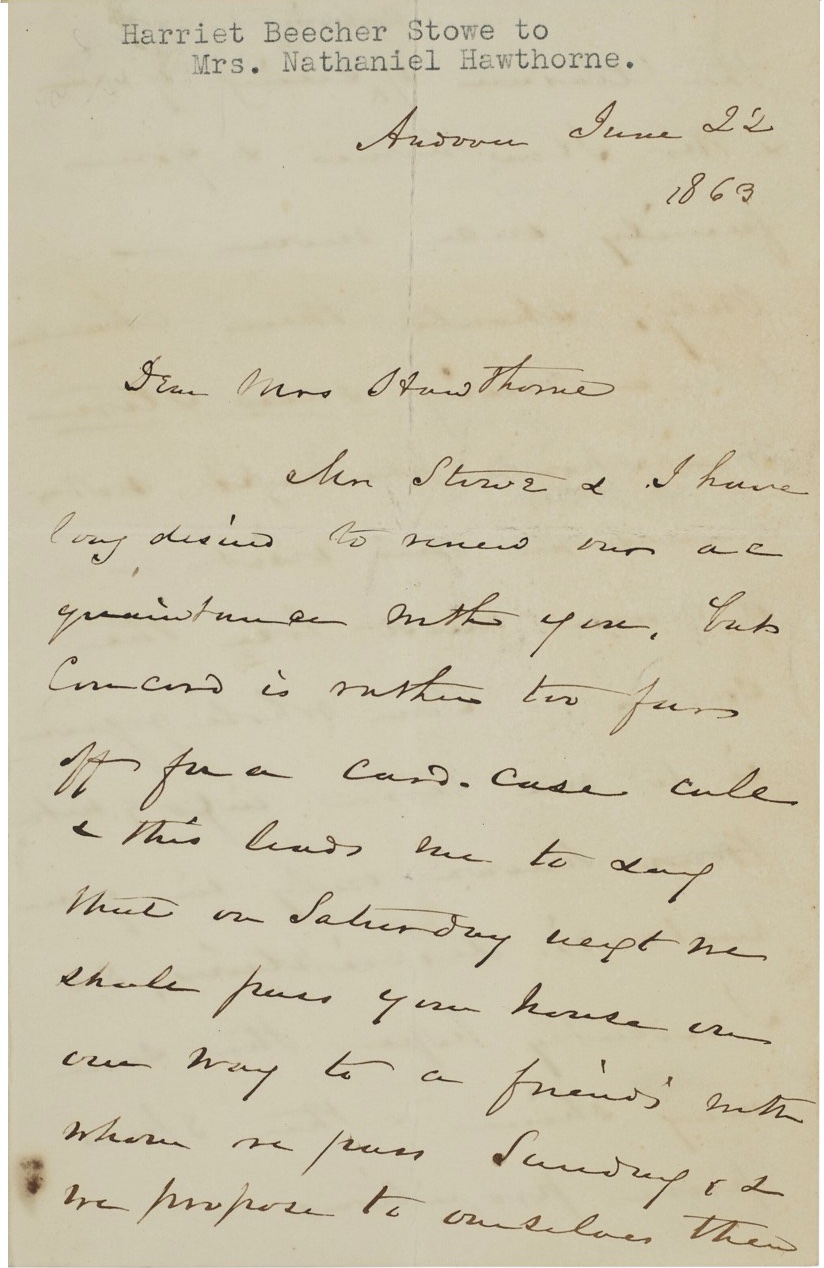A Visit With the Hawthornes in Concord
Stowe, Harriet Beecher. Autograph letter signed to Sophia Hawthorne
Andover, 22 June 1863
Three pages. Typed identification at head of first page, mounting remants on verso of second leaf. Very good.
Harriet Beecher Stowe arranges a visit to Hawthorne’s Concord home. Stowe wrote this letter the year before Nathaniel Hawthorne’s death. She tells Hawthorne’s wife Sophia,
“Mr. Stowe & I have long desired to renew our acquaintance with you, but Concord is rather too far off for a card-case call & this leads me to say that on Sunday next we shall pass your house on our way to a friends’ with whom we pass Sunday, & we propose to ourselves then the pleasure of calling & seeing you & Mr. Hawthorne & your family once more.”
She jokingly adds about the proposed early summer visit, “Only, should there chance to be a driving snow storm we should perhaps not undertake the visit — & of course must lose the call. Your whole region is to me terra incognita known only in your husband’s descriptions, so I ardently hope the sun may shine & the skies prove propitious. In such a case we hope to look in upon you, about two or three o’clock…”
Stowe spent a great deal of time with the Hawthornes in June 1860 aboard the ship Europa, bound from England to Boston, together with James T. Fields, Hawthorne’s publisher, and his wife Annie. Nathaniel and Sophia Hawthorne had spent the previous three years touring France and Italy following the end of his stint as U.S. Consul in Liverpool. Years later Annie Fields recalled, “Mrs. Hawthorne, who was always the romancer in the conversation, filled the evening hours by weaving magic webs of her fancies, until we looked upon her as a second Scheherazade, and the day the head was to be cut off was the day we should come to shore. ‘Oh,’ said Hawthorne, ‘I wish we might never get there.’ But the good ship moved steadily as fate. Meanwhile, Mrs. Stowe often took her turn at entertaining the little group. She was seldom tired of relating stories of New England life and her early experiences” (Annie Fields, ed., Life and Letters of Harriet Beecher Stowe, 1897).
Stowe and Hawthorne shared similar views of slavery. In an article published in the Atlantic Monthly in 1863, Stowe accused English women of not doing more to push for an end to slavery. Hawthorne wrote to her in response, “If anything could make John Bull blush, I should think it might be that, but he is a hardened and villainous hypocrite. I always felt that he cared nothing for or against slavery, except as it gave him a vantage-ground on which to parade his own virtue and sneer at our iniquity.”
$22,500



